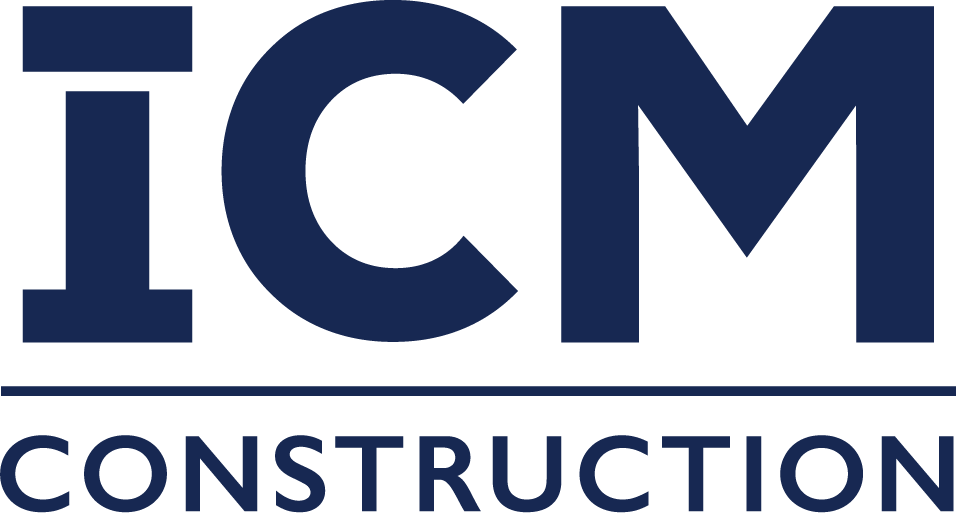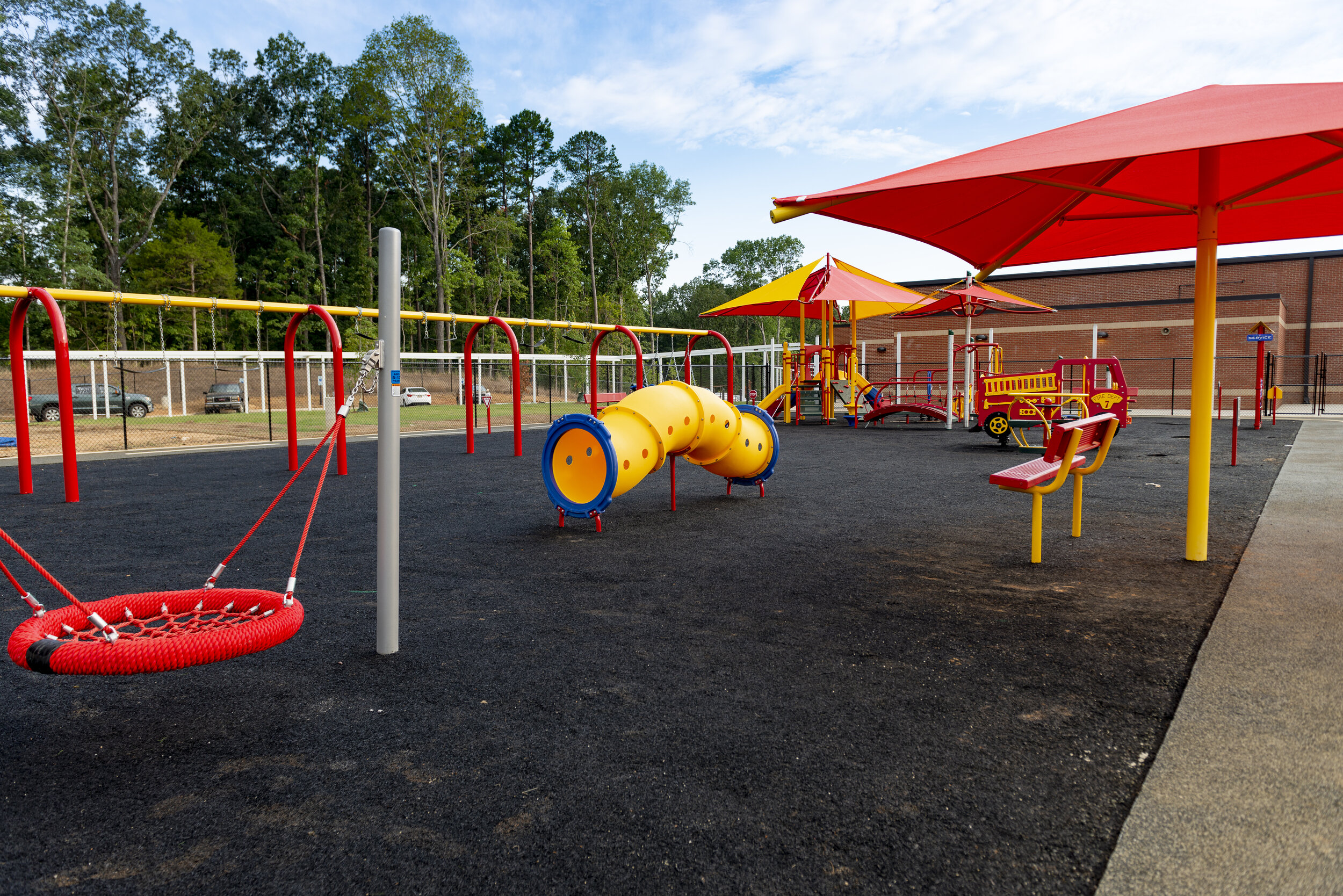Building High Quality K-12 Schools
A guide to successful K-12 capital construction projects for superintendents, principals and project owners.
ICM managed the construction of the new Central Elementary School for the Oxford School District in Oxford, Miss. The three-story, 87,000-square-foot elementary school includes three buildings, 43 classrooms, a cafeteria and kitchen, a gymnasium, a library and a media center, as well as outdoor learning areas. Learn more.
K-12 capital construction projects present an incredible opportunity to respond to the needs of current and future learners.
These spaces play a vital role in the success of the educational process. They significantly shape the learning experience for students, impact their health and wellness, help ensure equity in educational opportunity and contribute to the character of a community.
For the superintendents, principals, district administrators and other project owners responsible for planning and managing these efforts, capital construction projects can be high-stakes undertakings. As the leader of the project, not only will you be responsible for planning for the growth of your school or district, you must also develop and manage the project budget, get stakeholder and community buy-in, work with the architect and design team to develop plans that will meet the needs of students and educators alike, and ensure the project is completed on time and as expected.
ICM partnered with Lafayette County School District in Oxford., Miss., to evaluate current enrollment and campus space to determine the most pressing needs and create a master plan for the new Lafayette County Elementary School. Learn more.
It can be overwhelming, especially if you are unfamilar with the construction process or don’t have the right team on your side.
At Innovative Construction Management (ICM), we have managed a wide range of education construction projects. We understand the impact these projects have and are dedicated to partnering with schools and school districts to serve as their advocate throughout the entire lifecycle of a project.
ICM has created and refined a systematic approach to ensure the end result is high-quality, finished on time and on budget, and that it fulfills as many needs for your school community as possible.
Preconstruction Phase
Education construction projects typically begin with a challenge or opportunity: Have portable buildings become your school’s de facto method to compensate for overcrowded classrooms? Are there safety and security systems that need to be updated? Is there a new program — such as theater or STEM education — you want or need to make space for?
Once this challenge or opportunity has been defined and you have secured the funding for your project, you can begin working with an architect and design team to program the new building. Your architect will ask questions related to the scope of the work: Do you want a one-story or two-story building? How many classrooms do you need? How many bathrooms? They may also tour your current facilities.
The design team will then use this information to design plans for the space. This is a major early milestone in the lifecycle of a project that can help you rally excitement and support from various stakeholders. But when you start to look at the cost for executing these plans — especially during the early design rounds — it will often be over budget, which means you will need to make changes or scale back so the design is aligned with your monetary constraints.
In addition, if these plans do not incorporate construction knowledge, your project may be loaded with potential pitfalls or costly change orders, which can cause problems down the road.
At ICM, we work with our clients and the design teams to review all project plans during the design phase.
At ICM, we work with our clients and the design teams to review all project plans during the design phase. It is an essential step in our role as owner advocate that helps to ensure that clients are maximizing their budget while still receiving the best quality possible.
As part of this review process, we will:
✓ Conduct a cost-benefit analysis
Our team will meticulously review all design plans and material choices to look for opportunities to reduce the cost of items or features without changing the quality or overall aesthetic of the building. For example, if you choose to build a building with steel, we may give you a breakdown of what your savings will look like if you select another material, such as concrete. Or, if your plans call for a traction elevator, we will give you costs for going with a hydraulic option instead.
As part of this cost analysis, we will also provide context for the ultimate payback of what you are spending — such as the cost to maintain a system over the life of the building — so you are fully informed when making any decision. For example, when you are selecting your HVAC system, we will help you understand the pros and cons of each option from rooftop units to chillers, including the typical lifespan of each product. This knowledge will help you determine where you should spend more budget upfront and where you can afford to cut costs.
Our review is as detailed as possible and incorporates every layer of the design. We will even look at the size of the studs that are being used and how changes to the size could impact cost without impacting quality or safety.
✓ Review the design’s constructability.
This step looks at whether the plans drafted for your project are actually buildable out in the field. We will ensure that there is no conflict between materials and that the plans have accounted for the proper infrastructure to support everything from sewage to pipes. If these issues are left to be discovered during construction, it can lead to change requests that can delay the completion of your project and drastically increase your budget.
Bidder Phase
Mississippi is a hard-bid or competitive bid state, which means that for education capital construction projects, you must accept the lowest priced bid that contractors and subcontractors submit based on the design documents you provide.
For project owners, this can be a daunting prospect. If these documents are not detailed and well-defined, you may end up working with a contractor or subcontractor who may seekout shortcuts to complete their work as cheaply as possible. This will cause the quality of your space to suffer significantly and lead to rework or the need for constant unforseen building maintenance. While you may be saving money on the front end, you will ultimately spend more money in the long term.
By soliciting multiple bidders for each aspect of the project, the competitive market ensures the owner the best price for the scope of work.
At ICM, we make sure the bidding process works for you, not against. We work with you to outline every expectation — including schedule and quality requirements plus potential penalties for delays and rework — for your project in detail as part of your design and bid documents.
We also solicit bidders for each trade to ensure maximum quality bidder participation. By soliciting multiple bidders for each aspect of the project, the competitive market ensures the owner the best price for the scope of work.
Construction Phase
The construction phase of any given project is perhaps the most stressful for project owners because it is usually when the most budget overruns and schedule delays occur. At ICM, our proactive engagement from the design phase allows us to identify these items before they become an issue on your project.
During this phase, we are primarily focused on quality control, schedule and communication.
Quality Control
The quality with which your project is constructed will ultimately determine how much it will cost to maintain the building over its lifetime, and this can have significant ramifications for how well you can serve your students in the future. The funds needed to fix any poor work will have to come out of your operating funds, which can limit your ability to hire new teachers or purchase essential equipment.
For example, if the plumbing is not installed correctly it can lead to leaks in the walls that constantly need to be repaired. Or if the roof was poorly built, you may end up needing to replace it after just a couple of years.
At ICM, we guarantee that every building we build is high quality. We do this by implementing a two-step inspection process for each task during the construction phase that is spelled out in the bid documents and reviewed again with all contractors during pre-construction meetings.
First, every trade is required to inspect their work, document with a form and photo and then mark that work with spray paint. Next, the ICM team inspects the work again and documents it with a custom inspection form, photo and different color paint. This ensures that no work is covered up without being inspected and no poor-quality work is considered complete.
Schedule
We understand that additions and upgrades to schools typically need to be completed during periods when a campus is not in heavy use, while the construction of new schools must be ready to serve students at the start of a school year. Any delays can have significant consequences for hundreds of students and teachers. This means timelines for school capital projects are finite and immovable.
From day one, we will develop a schedule that accounts for each step of the construction process and will ensure that every member of the project team is coordinated and meeting this schedule.
As part of this schedule, we break the construction timeline into milestones or checkpoint dates that outline when everything from the building pad and concrete to the structural steel and drywall must be complete. If one of these dates is not met, we assess a penalty, liquidated damages. We also define key activities — from installing footers or the roof — that make up the construction process and give subcontractors a set number of days within which these key activities must be completed.
Every detail of this schedule is defined and included in our bid documents, which means the contractors must bid on and commit to the durations we have defined. This ensures the contractor and subcontractors stay on schedule and ultimately leads to a better-quality product.
Communication
It is essential that you, the owner, understand what is happening with the project at all times so each team member can be coordinated, and you can be accountable to your district and board.
To keep you updated on the project’s status, our team provides the project owner and design team with a weekly project report. This report outlines critical design items that need to be resolved, submittals that need approval and requests for information that need to be answered. It also provides a deadline for each task. We include upcoming activities so the design team can anticipate when they need to visit the site. The project report also includes the project financial status, schedule status and photos of any recent progresss on the project.
Let us advocate for your next project.
If you would like to learn more about ICM and the innovation and quality we can bring to your next project, please contact:
Casey Rogers, President
direct: (662) 550-3051
cell: (662) 816-7326
casey@icm.construction
Michael Marino, Head of Finance and Business Development
cell: (662) 380-3338
mmarino@icm.construction














